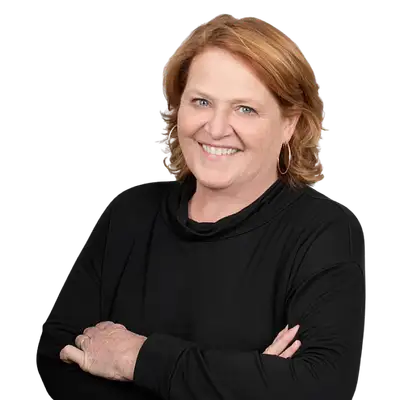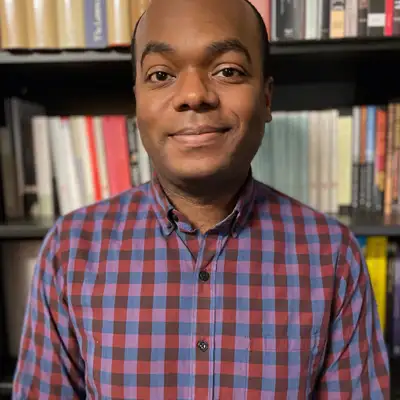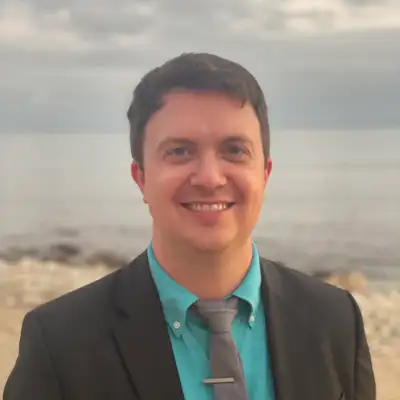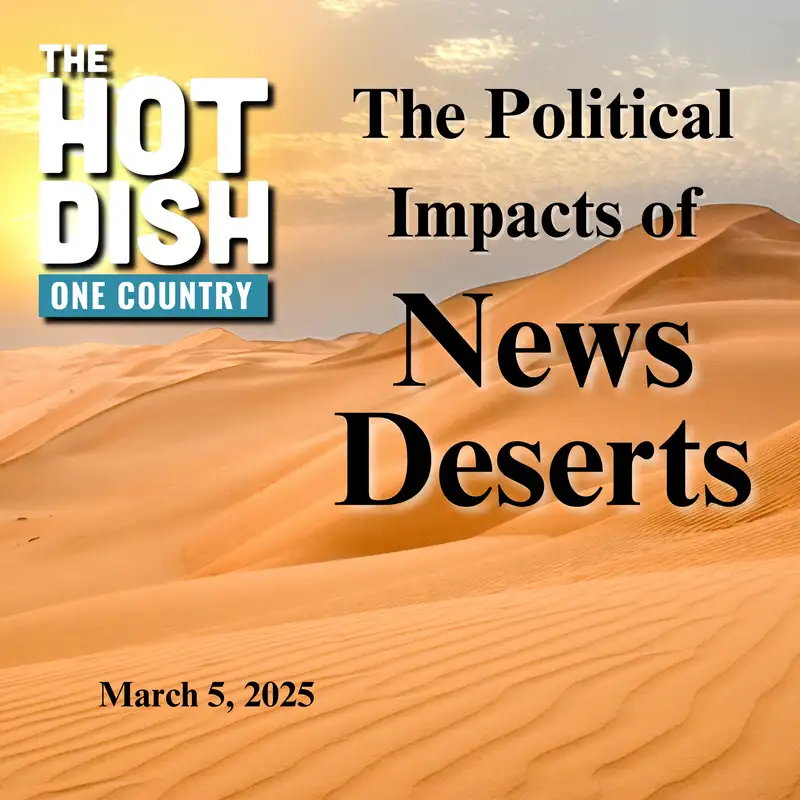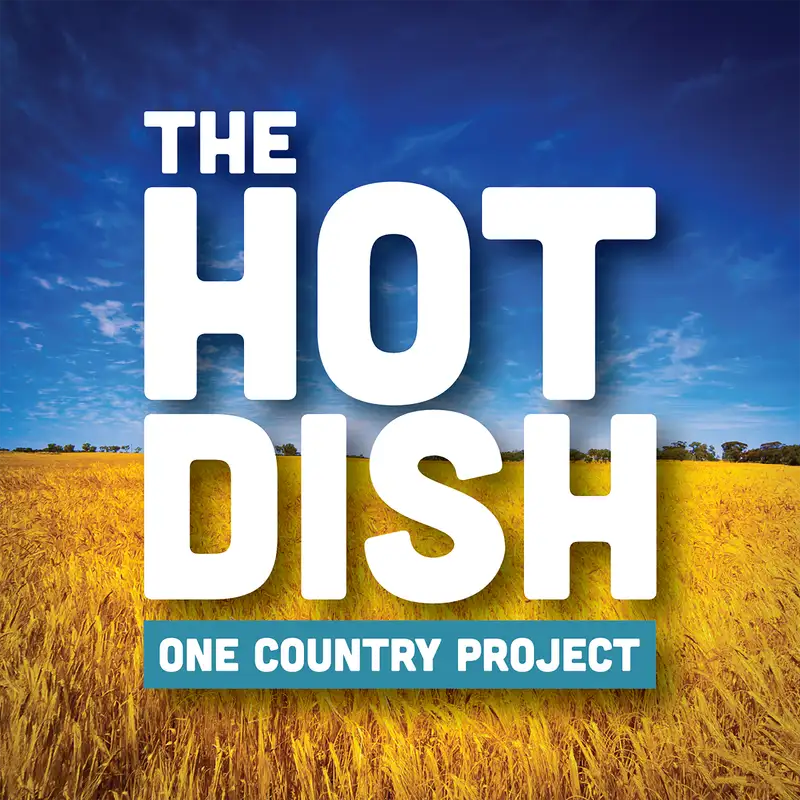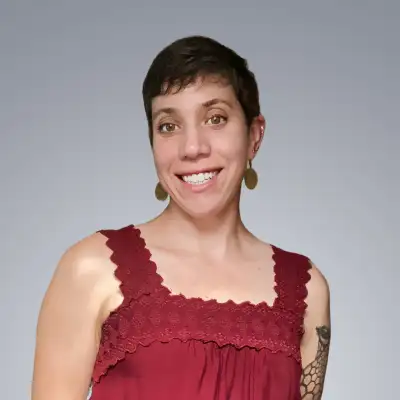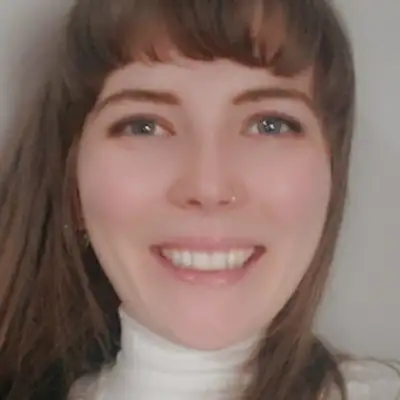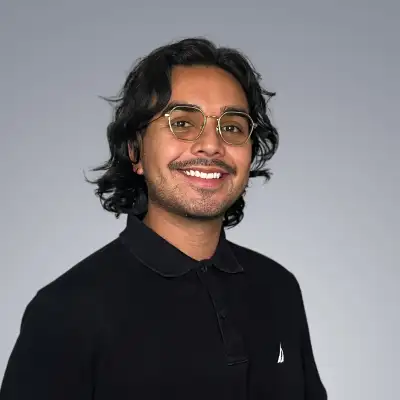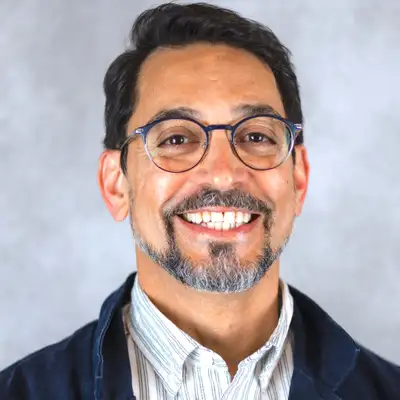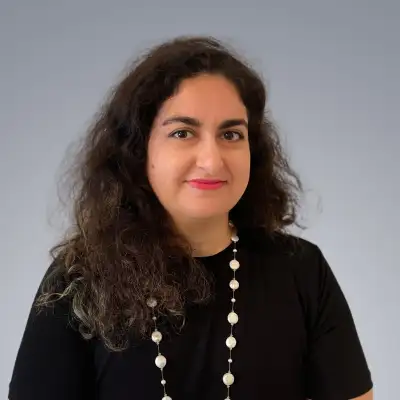News Deserts are Changing Rural America
Heidi Heitkamp [00:00:04]:
Welcome to the Hot Dish Comfort Food for middle America. I'm Heidi Heitkamp.
Joel Heitkamp [00:00:08]:
And I'm Joel Heitkamp. Many of you have written in and asked us to talk about how misinformation is impacting people and politics in rural America. So that's what we're gonna do today.
Heidi Heitkamp [00:00:19]:
You know, it's a really complicated subject, and people ask me this all the time. I don't think you can cover it in a single episode, Joel. When we grew up, I mean, Walter Cronkite was the gold standard. If he said it, people believed it. They trusted him. And you had tons of local newspapers covering local information, local stuff. And you know what? Guess what you don't have right now. You don't have that trusted news source. People always ask me, when did rural America go so hard? I said, when they started getting cable television and Fox News. But before we get onto details about this, Joel, I'm really curious, because you talk to people in middle America every day. How often does someone call into your radio station with a comment or a complaint that's just so crazy wrong? How often does that happen?
Joel Heitkamp [00:01:10]:
Every day.
Heidi Heitkamp [00:01:11]:
Yeah.
Joel Heitkamp [00:01:11]:
And actually, in my line of work, they're radio gold because you're really playing to the person that didn't call in. You know, it's the people that are listening to him or her that are. Are. And know they're misinformed. You know, that's a big part of it. But they call in every day and it's. You're never going to convince them, Heidi. You really aren't. You're never going to convince that person that they're misinformed, that they're just flat out wrong, that if they did a little homework, they'd find out it's not true. You hope it's the others that are listening that you can convince, and they can say, oh, okay, that's B.S. I didn't realize it. But every day. And it's amazing how easy it is to predict what they're going to be.
Heidi Heitkamp [00:01:54]:
Misinformed on, because it's whatever the talking points were that day on Fox News or on OAN or any of the conservative news channels.
Joel Heitkamp [00:02:06]:
Exactly. Everybody asks me, in my line of work as a progressive talk show host, why one of the things I do every morning is watch Fox News. And it's because then I'll be ready. I'll be ready for what that line is. You know, and then. And then you look at social media and everything else, but, you know, you mentioned cable tv. This is my Industry now, okay, this is the, the biased. As a radio host, I really believe people started getting misinformed in the Midwest and seeing, you know, their savior when Rush Limbaugh came around.
Heidi Heitkamp [00:02:38]:
Absolutely.
Joel Heitkamp [00:02:39]:
And when Rush Limbaugh came around, everything changed in media in the Midwest, in the Plains states.
Joel Heitkamp [00:02:46]:
It certainly did.
Heidi Heitkamp [00:02:47]:
What I just say is when somebody says something crazy on your social media platforms and you just roll your eyes, you know, there's a lot of people who are looking at that who may not have a bias yet, and a claim that goes unrefuted becomes fact. So all the people out there who want to fight disinformation, you're on the front line, you're looking at your social media platforms. I'm not saying you get into a fight with your friends, but, you know, ask the question, did you look at this news source? Did you look at this? This is, you know, great example right now is President Trump says that we gave or we provided $350 billion to Ukraine. That is absolutely not true. It's not provable. And so, you know, when they use that 350, say, look, let's talk about what we know. And these are from reliable sources showing where the money was appropriated. And.
Joel Heitkamp [00:03:45]:
Well, I think that one of the biggest criticisms I get from my progressive audience or my middle of the road audience is that I give the ultra misinformed conservatives too much time on air in comparison to other callers. And, and I do that on purpose because that's the conversation you're looking for. But you, you talk about engaging, Heidi, and that's, that's a fine line for people like you as well, though you are a former United States senator and you're constantly reading things that aren't factual aren't true. So at what point do you make them relevant by allowing them into, or letting yourself go into the conversation? I hope you understand what I'm getting at.
Heidi Heitkamp [00:04:32]:
Yeah, I know exactly what you're saying, which is, do you take the bait every day?
Joel Heitkamp [00:04:37]:
Right.
Heidi Heitkamp [00:04:37]:
Or do you hold your powder? You know, in North Dakota, one of the branches of the legislature recently passed a bill basically asking the Supreme Court to reverse same sex marriage determinations. And you know, that I felt strongly enough about, you know, I'm taking a pretty active stance. I feel very strongly about Ukraine and making sure people understand the facts. And so that, that's something that I'll talk a lot about. Buying Greenland. I could care less if you guys want to yak on about buying Greenland. So I pick and choose my fights.
Joel Heitkamp [00:05:09]:
But, but a lot of what we're, we're charged with talking about today. Those media deserts happen at a, a coffee table at the local scenic store, right? And you're sitting there and it takes just that one guy to come in and tick everybody off. And just the calmer guy to just go, yeah, we all know he's full of crap. I'll give you an example. We had a gentleman that both you and I grew up around. He walked into a Cenex in Wyndmere, North Dakota, comes in and he goes, this whole COVID thing, this is all fake and you know it. And it's Joe Biden and it's, there's nothing to it. One of the guys at the table, Heidi, had lost both his parents to COVID, but this guy sat at that table and made that argument until one guy looked at him and said, you know, you're wrong. Where he got that, when he said, no, I'm right, was Fox News. And so he came into that cafe with a clear bias that was absolutely wrong. What you want to have for news, you can go out and purchase it. You can buy the news you want, whether it's true or not. And the bad part is, what isn't talked about a lot is that print media isn't really there as much for rural America as what it used to be. And they used to be able to trust that source. I still think a lot of journalism happens in print media, but a lot of people in the rural area, Heidi, have given up on newspapers. But in the end, the conversation needs to go where people are listening. And that's this whole media desert. Where are they listening? Where are they buying? You know, are they getting it through talk radio? Are they getting it through social media? Are they getting it through the newspapers? I think we get it from all.
Joel Heitkamp [00:06:55]:
Angles, is my point.
Heidi Heitkamp [00:06:57]:
Yeah. And I hope what you take away from this is that Donald Trump exploited this. He did not create this. He amped it up and it's on steroids now. But this started a long time ago and now we see the creep, not just in our area, but take a look at what happened in the election in deep blue parts of our country. Country. And so this is a really important issue. We aren't going to solve it today. Joel. So let's get to the rest of our show. We mentioned that news deserts are a problem for rural and small town communities. So we asked one of our producers, Bethany Brookshire, to look into the topic and help us all understand what's going on. Bethany, what did you learn?
Bethany Brookshire [00:07:44]:
Thanks, Heidi. I spoke with John Volk of the Medill Local News Initiative at Northwestern University and Joshua Darr from the Institute for Democracy, Journalism and Citizenship at Syracuse University about news deserts and how they impact the kind of information that rural and small town Americans get. So let's start with a question for John Volk. What is a news desert and how many people are living in one? People might know what a food desert is. What's a news desert?
John Volk [00:08:13]:
Yeah, it's a very similar concept. If you have a food desert, you're probably not going to have a lot of grocery stores around you. A news desert is a very similar concept where you're living in a place that doesn't have a reliable source of local news. So what we found, we released a study last November. It's the latest in a series of annual projects we do on this. There are over 200 news desert counties across the country. So we're talking entire counties that don't have any source of reliable, professional local news.
Bethany Brookshire [00:08:44]:
So how many counties in the United States are considered news deserts and how many people does that impact?
John Volk [00:08:50]:
Yes, so there are 206 counties in the entire United States that don't have a source of local, reliable, professional news. There's an additional 1500 counties that just have one source of news. And if you combine Those, that's over 5 million people in the US that are living without a source of local news.
Bethany Brookshire [00:09:12]:
And so what is it about rural areas? Are they particularly prone to being news deserts? And why is that?
John Volk [00:09:21]:
So if you looked at all those 206 counties that don't have any local news, there's almost 80% of those are in counties that the USDA would classify as rural. And if you looked at every single rural county, you're looking at almost 10% of those counties are news deserts. It's a variety of factors, but probably the most important among those is a lack of economic investment in those areas where you don't have a strong source of a retail base that can support advertising and local newspapers especially. That really drains the lifeblood of what's going to sustain a local news operation. So if these places have lost people or they've lost businesses, then they're probably going to end up losing their local news as well, because there's not the base there to fund those operations.
Bethany Brookshire [00:10:15]:
Let me turn now to Joshua Darr. Joshua, when there is a lack of local coverage, how are people in rural areas impacted? How are they affected by local news shutting down in their areas?
Joshua Darr [00:10:28]:
I think the people in rural communities are particularly affected by this phenomenon where many local news sources are closing, particularly hit hard. Our weekly newspapers, which have served rural communities for many years, they're often sort of mom and pop operations, Valuable for local businesses to place advertisements in, valuable for people to pick up and read once a week and get the take on what's happening in town or in the county or in a collection of counties that are otherwise ignored by big city media sources. There's often not an obvious replacement. What does that mean in practice? It means you're going to consume more national news. National news is the other side of the coin for the decline of local media because it's doing really well. There is a real trend in the overall media environment toward national politics and away from local politics, which means people hear less about politics as it works in their communities and more about politics as this kind of far off ideological battle between two parties that can't seem to agree on anything. And so in that way, the decline of local news is contributing to polarization overall.
Bethany Brookshire [00:11:37]:
What is the harm to a local community when they're living in a local news desert?
Joshua Darr [00:11:44]:
It's particularly harmful to a local community when they lose their local news. Because a lot of the elections and decision making does happen at the town, county, state level. The national government is bigger than it used to be, but it's not making all the decisions. There's a lot of things at stake in local elections, at local meetings. Depending on which form of government your town or county may have, it's easier to get involved at that level. It's easier to make your voice known at that level. But you can only do that if you know what's going on and you know who the players are. And so when it comes to electing the best person for the job and not just checking the box next to the political party that you think is best at the national level, that might not be the case at the local level. The issues that are at stake, you know, it might not be relevant to the issues facing your county. What the person running for office thinks about the most recent policy of the president of the United States, that might not be the most pressing thing. And so the nationalization of politics and the polarization of politics go hand in hand. And you learn less about the issues that make local elections tickets when you don't have local media to report on them.
Bethany Brookshire [00:12:57]:
So you said that this kind of goes hand in hand with polarization when you have this local news desert. How is that polarization driven if people only have access to national news like you still have Access to national news from both sides. So what's driving the polarization?
Joshua Darr [00:13:14]:
Polarization is driven by national politics, particularly by national political news, because it's all about conflict between the two parties, the way that national government is set up. There's a lot of chances for politicians to take positions that are in line with their party to make the case for their party being correct about things, to say that the other side is wrong constantly. And really, it's just about who's winning day to day. This is partially a problem of sort of game framing by national news at the local level. A lot of these offices don't even have partisan affiliations attached to them. And so while you might know because you know the person where they line up or because you saw their ads, in general, local issues don't need to fall along the same ideological lines as national issues. They're local. They're specific to your community. I think we can talk generally about rural issues, but I think each rural community has different issues also, and it's up to the people in those communities to figure out how to solve them. And I think in general, the categories that we inherit from national politics get in the way of solving those problems for offices that aren't even really designed to be partisan in many of these cases.
Bethany Brookshire [00:14:33]:
You actually wrote a book on local news and political polarization a few years ago, focused on a local newspaper in California. And I was wondering if you could talk a little bit about that book and the lessons that you learned from studying this community.
Joshua Darr [00:14:49]:
Absolutely. So, yes, we wrote a book in 2021 called Homestyle Opinion, about an experiment that a newspaper in California conducted, the Palm Springs Desert Sun, that was actually in response to a paper that we had written where we found that when a local newspaper closes, polarization increases. So the editor of this newspaper dropped national politics from the opinion page of the newspaper for an entire month. So no syndicated content about national politics, which had previously been about a third to a half of of the op ed page, more contributions from local people, more about state politics in California. And so there was no talk about the president, which had previously been about a third of the page. There was no talk about Congress or the ongoing Democratic presidential primaries. This was in 2019. Instead, it was California all the way down. And we partnered with them, once we heard about this, scrambled to get surveys in the field because it was such a cool opportunity. We found that political polarization decreased in that area over the course of that experiment. So measured as affective polarization, which means whether or not you like the other side and social polarization, which is how comfortable you are socializing with the other side. So really like interpersonal dynamics, we found the temperature cooled in those areas, specifically among people who read the newspaper, people who know the most about politics and people who are most politically engaged. So sort of the people you'd want to reach to make these dynamics as impactful as.
Bethany Brookshire [00:16:18]:
And why do you think this happened? Why do you think you saw this decline in polarization?
Joshua Darr [00:16:24]:
I think that affect of polarization is really high. The two sides don't like each other. It's usually measured on a 0 to 100 feeling thermometer. And it was up or the difference between where you rated the two parties was between 70 and 80 points, which is two sides of this. That's the definition of polarization is distance. So they were really far apart. So really anything that pushes back on that, that slows that down is interesting and worth noting and something that people may want to pursue. The op ed page gives you that color that enforces local identity, that reinforces local identity. And this is really the key is national news reinforces partisan identity. I am a Democrat, I am a Republican. Local news can reinforce your local identity. I'm from here. Maybe that has political meaning, maybe it doesn't. But if you're leading with that notion of local identity rather than approaching all news and politics as what's my side got to say about this? If your side is your community, that's going to affect the way you interpret the news. And you're going to be looking for those perspectives that you can connect with and the op ed page is a good place to find them.
Bethany Brookshire [00:17:35]:
John, let me turn to some of your work. You recently did an analysis of voting data from the last election. What did that analysis teach you about how news deserts might be related to the election results?
John Volk [00:17:46]:
Yeah, so we took a look at these 206 counties I mentioned that don't have any source of local news. And we said, well, how did these counties vote in 2024? So we found that overwhelmingly they ended up voting for the winner for Donald Trump. Over 91% of those 206 counties voted for him and they voted for him by a pretty wide margin. And in lots of cases we're seeing percentage point margins of over 50 points voting for Donald Trump in these counties. I think what we need to be careful about here, and I've seen people that try and kind of spin this into a cause and effect. Well, okay, this town doesn't have or this county doesn't have a news source. So they're not as educated or they don't. They're getting misinfo. So they're going to vote for Donald Trump. I don't know that it's so easy to draw that cause and effect. And I'd really caution against it. I think what it tells us instead is kind of the reverse side, that the places that are being hit hardest by this crisis in local news are also conservatives. So the way I think about it is that these people are kind of the victims of a really serious problem. They're living without their news. And we know that that carries a host of whole other problems with it. Civic engagement goes down, borrowing costs go up, government spending goes up. In certain cases, we even see government corruption goes up. So these people are getting hit hard by a number of different factors that come with losing their news. And they also happen to be conservative. So what this really tells us is it just gives us another kind of layer about what we know about these places that are losing their news. And one of those things is that they vote strongly Republican.
Bethany Brookshire [00:19:25]:
Joshua talked about how coverage of national news without local news could be related to increased political polarization. What are your thoughts on that?
John Volk [00:19:34]:
Yeah, well, you don't have that like grounding in your community as much when all you're hearing about is sensational stories on your television set at night. It can make the world a much more scary place, I think, than if you're getting kind of really the nuts and bolts facts about what's going on in my town, what's happening with my neighbors. When all you're hearing about are these major national issues, it makes the world a different kind of place to deal with than the one that you're encountering if you just walk down the street.
Bethany Brookshire [00:20:07]:
Joshua, you've done some work on the concept of roll off voting in news deserts. So first of all, could you explain to our listeners what roll off voting is?
Joshua Darr [00:20:16]:
Roll off is when you vote for the higher profile races at the top of the ballot and leave the rest blank or leave lower level races blank. In local races, you don't always have a party next to the person's name and you may be hearing about them for the first time when you step into the voting booth. Unless you've got local news that's reporting on these races or those people have been talked about or been able to afford to advertise in your community. And so people won't always want to just guess which candidate is best and they may just leave it blank if there is a party Next to their name, that's the only thing they know about the person. Maybe they check that off whether that person is actually the best candidate for it, the particular thing that they're running for. So roll off is often thought of as a symptom of low information. You don't know enough about the local races to vote on them. I'll also note that this goes both ways where people will vote on lower level races and leave president blank. So these things don't always add up. Whether that's because of people's motivation, they're just there to vote for president and then they go home, or because they would very much like to vote for things that are down ballot but they just don't know enough about them and don't want to make the wrong choice. It's definitely something we would expect to see more of when local news declines.
Bethany Brookshire [00:21:32]:
John, you've noted in your work that better access to local news can increase split ticket voting. Can you tell folks what split ticket voting is and what your analysis found?
John Volk [00:21:44]:
Yeah, absolutely. So split ticket voting would indicate when you cast your ballot there is going to be a vote for one party and another party. So maybe I voted for a Democrat for president and maybe I voted for a Republican for governor and maybe for my county commissioner, I voted for an independent or any mix therein. So what we've seen is that when you lose your source of local news, the instances of that where you're voting for multiple parties on the same ballot that you're casting, that's going down. So instead of voting for multiple parties, I'll vote all the way down for Democrats or I'll vote all the way down for Republicans. It speaks to that kind of polarization that can come around when you no longer have a source of local news in your community.
Bethany Brookshire [00:22:29]:
So many of our listeners or, you know, people they know, might find or might already be aware that they are living in a news desert, right? What can they do about that? Is there a way that local people can water their news deserts? How do you bring local news back?
John Volk [00:22:44]:
I'd say first of all, be really careful about the information that you come across online. So that's where I'd start. If you've lost your local newspaper and the only replacement you can find is maybe you're part of a Facebook community group with your neighbors or something, I would say be really careful about what you're reading and what you're sharing in these kinds of groups because oftentimes it can kind of turn into a gossip or rumor mill and it can be really mean spirited sometimes too, I think is something that kind of gets lost where if you don't have a real reporter doing the hard work of asking tough questions and getting answers and hearing from all sides, then a place online on social media can really lose that grounding and become a real source of misinformation and in many cases, hateful discourse. So that's where I'd start. I'd be really careful about how you're engaging with all that. On the other hand, there are a lot of other ways that you can get involved in your community to kind of get these facts. So if it's going to a town meeting or going to a, you know, a meeting of your county commissioners, you know, ask them the questions yourself. If you're wondering about something that's going on in your town and you don't have a reporter that can go ask that question, do it yourself. You can go and email your, your representative, you can go knock on their door, you can show up at a meeting. So those are the kinds of things I would do to find really productive ways to engage civically in your community however you can.
Joshua Darr [00:24:13]:
I think a lot of those places are quite interested in starting news outlets or enhancing existing ones that help rural communities. There's a rural news collective centered at the University of Kentucky that might have good resources for you if you're looking to start something there or understand some of the unique challenges that local news faces that I would recommend looking into. In general, we're at a moment where there is actually a decent amount of philanthropic support. It can't really replace financial support from local businesses. However, I think if you're, you know, a local chamber of commerce, if there's a local foundation, community foundation, that sort of thing, those could be particularly valuable for helping to start or enhance what you already have for local media. I think there's a real vested interest for local businesses and people who have a stake in the economic health of communities to want to enhance local media in those communities. There's so much evidence that having more local media improves government performance, improves economic outcomes in that area, enhances civic engagement, cuts down on business violations. There's some evidence that it can help decrease pollution. If you want a silver bullet for improving your community, there sure are a lot of ways that local media can help you. And you know, for a somewhat modest upfront investment, you can get something started that could provide a lot more coverage than you currently have in a lot of these rural communities.
Bethany Brookshire [00:25:45]:
John Volk and Joshua Darr, thank you both for joining us on the Hot Dish.
Joel Heitkamp [00:25:54]:
Heidi, I wanted to look at this topic from some different angles. So I spoke with a reporter about the problem and specifically someone who can also talk about how news deserts impact communities of color. Brandon Tensley is a national political reporter with Capital B, award winning, it's a black-focused nonprofit newsroom. But he's formerly a writer with CNN. He's been covering political movements on black America for a long time. And so let's just get to it. Brandon, good to have you on the Hot Dish.
Brandon Tensley [00:26:26]:
Thank you so much for having me.
Joel Heitkamp [00:26:28]:
One of the things that we want to talk about today is, you know, I live in Hankinson, North Dakota, a town of a thousand people. You know, wow. You know, it's, but I love it. And so we weren't, we're focusing on news deserts. You know, some of those rural areas, oftentimes people think of news deserts and you know, they think of just flyover space. And quite frankly, Brandon, they, they just think of white America. Give me your take on some of these news deserts.
Brandon Tensley [00:26:55]:
Yeah, I mean, news deserts do not only affect certain regions, they don't affect just certain communities. It's really just anywhere where there's a sort of consistent lack of access to news. And for a place like Capital B, you know, where a local national nonprofit newsroom and part of our mission is to go to places where there are large black populations that do not have consistent access to news. And so our local newsroom in Gary, Indiana is an example of that. You know, Gary is, I believe it's about 77% black, but for years and years and years has struggled to actually have access to news unless you wanted to, like, look at Chicago or something like that. And so Gary for us is an example of a place where there's a community in need of news. And this is an opportunity for us to work with black communities in the area to bring them the news that they need and they want.
Joel Heitkamp [00:27:53]:
Brandon, how do you make sure that you connect with people of the rural area or people of, of color when it comes to the effects that D.C. and Trump 47 can have on them? And I'm going to give you an example. My area, when they think of Medicaid, they don't think of themselves. They don't, they don't think of themselves one bet. And yet they don't acknowledge the fact that grandma's in a nursing home on Medicaid. And so all of these changes that we're seeing, if you look at just the data, they have so much more to do with rural areas than what they do with urban. And it doesn't matter if you're black or white, you rely on these services.
Brandon Tensley [00:28:31]:
Yeah, I mean, I think one thing that's kind of easy to forget is that most black people in the United States actually geographically live in the South. They're in a lot of these sort of like rural pockets that we have throughout the southern United States. And so whenever we are thinking about how to make sure we're including people who are in. In these rural areas, we do a lot of. We might do call outs. We might do. You know, a lot of us have connections to these communities. You know, our rural issues reporter, Aallyah is from Mississippi. You know, we have a newsroom in Georgia. And so we have those sort of, like, personal connections and sort of mindsets to be able to think like, oh, these are organizations that might be doing work around access to health care, access to voting rights in these areas that are really important to highlight. We always think in terms of, like, how do we make this people focused? You know, regardless of what the issue is, it's like, what are the stakes of how this issue affects people? People, including people in rural communities who often are overlooked, or in rural communities who people often think of as being white communities and not thinking about the. The many black people in other communities that make up these rural areas.
Joel Heitkamp [00:29:46]:
You know, in the end, you still have to make the light stay on. I mean, you may be a nonprofit, but you got to make it work. You know, media is under attack. You and I both know that. I mean, lawsuits here, lawsuits there, you know, threatening of licensing. How do you make sure that I'm still talking about you and what a great job you're doing a year from now?
Brandon Tensley [00:30:07]:
So we have many different ways that people can support Capital B. We will never have sort of paywalls. We always want our news and our coverage to be accessible to people. And so that is something that, like, we're. We're not even entertaining the idea. But, you know, we do have sort of membership programs. People can sign up to donate $1, $5, $10 a month. We encourage people to sign up for our different newsletters. But, you know, what we're finding is that when you actually have these people centered stories, when you're actually talking about how a particular issue in Washington and wherever affects people's daily lives, like, there is a hunger for that. And so for us, it often is a matter of just making sure that people know about the work that we're doing. They know about the coverage that we can offer and that we think is different from the other kinds of news coverage that's out there.
Joel Heitkamp [00:30:56]:
To me, it's just so evolving. I mean, you're the young man. You're going to be in this business for a long time. You don't accomplish what you already have unless you're good at it. For me, I'm an old man. I mean, I watch baseball. I'm going to be going there pretty soon, later on today. But my point is keeping up with that. Brandon, you see what I'm getting at, because it's, it's like you're drinking water out of a fire hose. And, you know, some of the people that you're trying to connect with and I'm trying to connect with and we're both trying to make sure aren't ignored are individuals that don't always have the time for us. I mean, they're out there working. And so, I mean, how that constantly involves. That's got to be even tiring for a young man like you.
Brandon Tensley [00:31:40]:
Yeah, it's. It's tiring, but also really exciting in some ways. I'm almost 35, and so I think about just even, like 10 years ago when I was really sort of getting into journalism as an industry, that the media landscape looked different then from the way that it looks now. But part of the excitement is really just seeing those, seeing these changes as opportunities. And I'll give you one, I think, really fun example. So for Aaliyah, our rural issues reporter, she was recently covering, you know, she covers broadband access. She covers access to forms of governing in, in rural areas in the United States. And she, one of her sources had told her that, you know, like, like you said, Joel, like, people are working, people might have reliable Internet access. They can't just go to capitalbnews.org and pull up an article. And so what she did was actually sort of reformat one of her articles. She had spoken with a source for printed out, I don't know how many copies, went to FedEx and mailed it to him because he said that I actually think this is something that would land really well. Like a hard copy would land really well with people in this community. And so that was something that I think really excited a lot of us because it showed us, like, oh, like in some ways, this sort of seemingly more analog way to distribute news still has importance and value depending on the community you're covering. So I think that being nimble, being always willing to think about the needs of a community and the needs of how they want to and can consume their news has to be sort of paramount in your mind.
Joel Heitkamp [00:33:15]:
Yeah, exactly. And I want to meet the people you're hanging out with, because that's motivation, that's dedication.
Brandon Tensley [00:33:21]:
Exactly.
Joel Heitkamp [00:33:22]:
I mean, we talk about, you know, the younger people. Are they.
Joel Heitkamp [00:33:25]:
What.
Joel Heitkamp [00:33:26]:
What are you seeing? Because are you connecting with them? Are they paying attention to the type of issues we're talking about today?
Brandon Tensley [00:33:33]:
I would say a hundred percent they are. And it's a matter of just going to where they are. And so for us at Capital B, you know, we have a really, I think, talented, incredible social and audience team. And so we're thinking about, for instance, once a month, can reporters. Can one of the reporters sort of take something that they're working on, a story that they had been working on, and package it into sort of like a video exposure explainer? Something that we could push out on Instagram, on TikTok, on wherever, just. Because even for me, I don't personally sort of like, use TikTok in the way that people who are Even, you know, five or 10 years younger than me rely on TikTok or rely on Instagram in terms of, like, a form of news consumption. But, you know, it's not about me. It's about how do we reach people who still do have this desire for news, but they just. Their access to it looks different.
Joel Heitkamp [00:34:23]:
Okay, so think of a news outlet. I don't care which one it is. The New York Times, Fox News, NBC, I don't care. But you get to go on there and you get to make sure they know one thing. You get to focus on one thing about what you do in terms of making sure that connections made. What would you tell them? What would you tell them to get their attention?
Brandon Tensley [00:34:46]:
I would tell them Capital B is covering news in a way that no other outlet is doing. I know that's a big sort of statement to make, but I think that we are elevating black people in a news sense, centering black people in a new sense that I would argue no other place is doing.
Joel Heitkamp [00:35:08]:
I think you picked just the right one. I do. I think you picked exactly what you would need to tell them to get their attention. And something tells me you already have. So, Brandon, keep doing what you're doing. The world needs you and it needs you. Could be anywhere. I mean, really, you could be writing anywhere, but you chose this. And so hats off to you. And thanks for not forgetting us in the rural area.
Brandon Tensley [00:35:28]:
Of course. Thank you so much for having me.
Joel Heitkamp [00:35:30]:
You bet. Thanks for joining us on the Hot dish.
Heidi Heitkamp [00:35:35]:
This is such an important topic and I wish we had more time.
Joel Heitkamp [00:35:38]:
You know, I think we're going to have to come back to it, but we want to know what you think about it. Do you live in a news desert or do you know someone who does? How do you think the lack of local media impacts politics and communities?
Heidi Heitkamp [00:35:53]:
Well, tell us what you think. You can email us. The address is podcast@onecountryproject.org.
Joel Heitkamp [00:36:02]:
And the One Country Project is now on Bluesky, the new social media platform that's not terrible. And also on Substack, where you can read more about this and other topics that matter to rural America.
Heidi Heitkamp [00:36:14]:
Thanks so much for joining us on the Hot Dish, which is brought to you by One Country Project, making sure the voices of the rest of us are heard in Washington. Learn more at OneCountryProject.org.
Joel Heitkamp [00:36:27]:
That's right, OneCountryProject.org. We'll be back in two weeks with more Hot Dish, comfort food for Middle of America.
Creators and Guests
